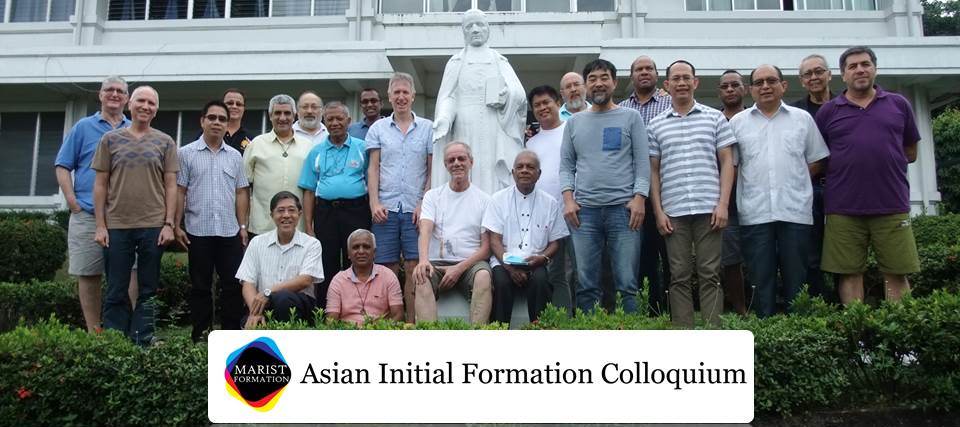
Marist Formation in an Intercultural Community
For six days prior to Christmas (12- 17 December) the formators of the three Administrative Units of Asia gathered at the Marist Asia Pacific Center in Manila, Philippines for a colloquium on Initial Formation. This gathering was a follow-up to the Institute’s Initial Formation Colloquium at the Hermitage in October 2015. Since that gathering, individual AUs in Asia had also had their own colloquiums. It was now time to gather as a region.
The theme of this colloquium was: Marist Formation in an Intercultural Community. Twenty-two Brothers from Asia, from all stages of Initial Formation, came together to expand their understanding of this. They were joined by two Brothers with responsibilities for Initial Formation in the Oceania Region.
The first day was set aside for reconnecting with the vision emerging within the Institute – from the XXIst General Chapter, through the 2013 General Conference, to the 2015 Hermitage Colloquium, and more recently in the developments of the New Models (AGM) process. Themes such as: new lands, global availability, regional co-operation, etc. kept echoing for us.
Two days were set aside for a closer study of what interculturality means, what vision of community life it lays before us, the skills needed, and its implications for Initial Formation. These days were then made more concrete by a further day focusing on key formation processes, such as accompaniment. We were assisted by Fr. Michael Maguire SSC, who had previously given input at the Hermitage Colloquium. He encouraged us especially to strengthen in the formand, the skills for inner guidance.
The final two days were devoted to reviewing current plans, and developing them further in light of the insights gained during the previous days of reflection and conversation. The regional thinking will now be carried forward by the Formation Commission of the Marist Asia Conference.
The colloquium had many benefits: being able to breakdown something of the loneliness of the formator’s role and to experience the support of one’s Brothers, to have increased confidence that the plans and processes in place at the moment are “good enough”, and to learn from each other small but significant ways of being more effective formators.
